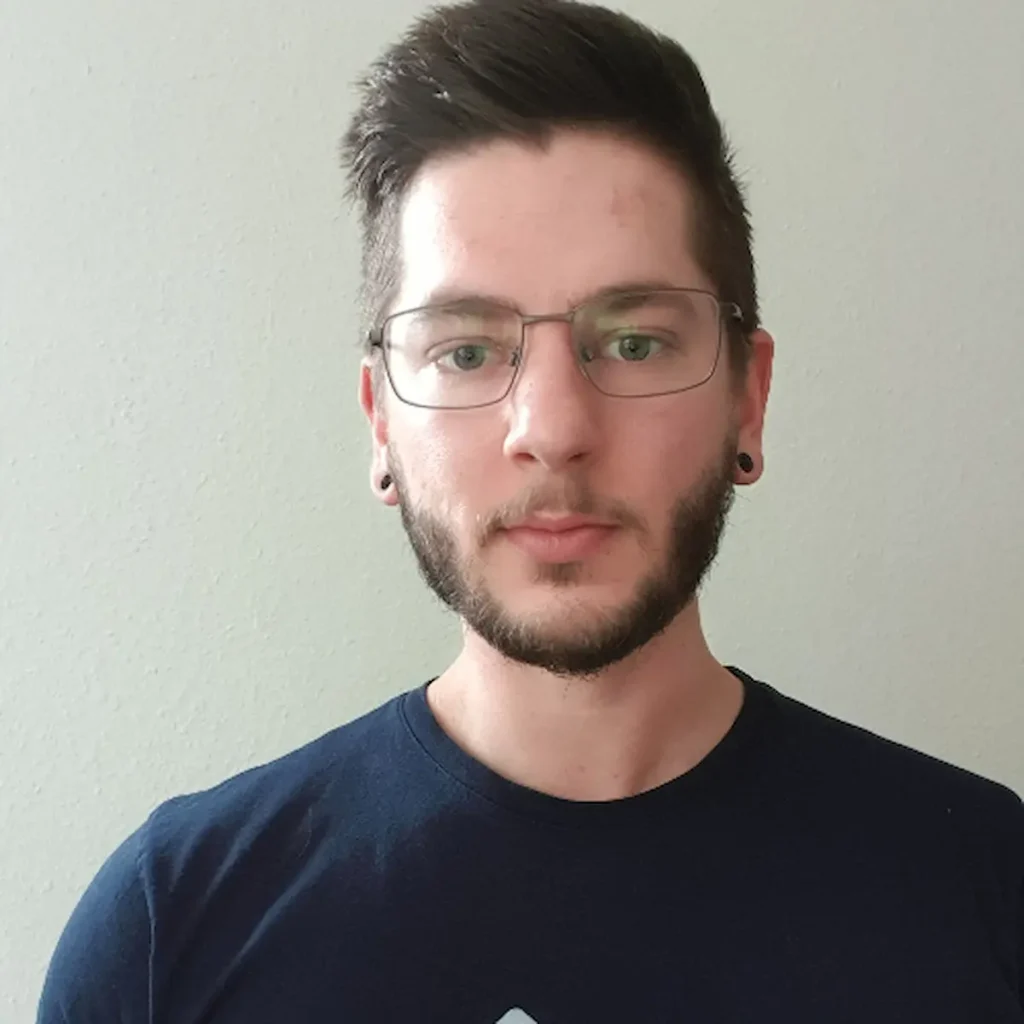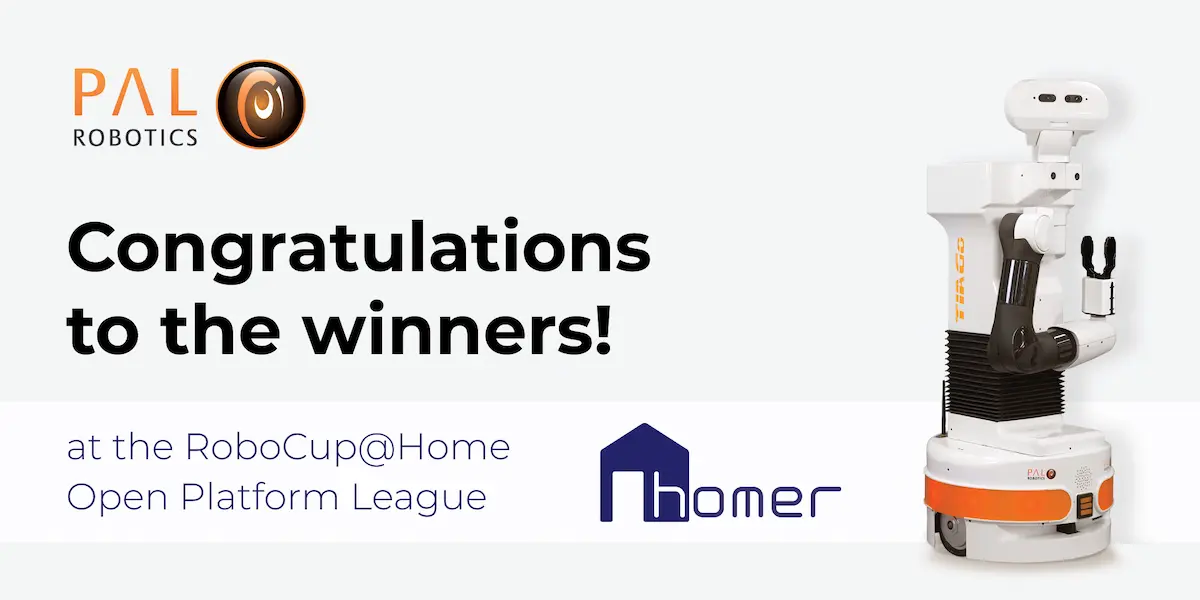The importance of competitions for students and taking part in virtual challenges
Congratulations to the Homer Team from the University of Koblenz who were awarded the 1st prize at the Robocup @Home Open Platform League robotics competition recently! The RoboCup@Home league aims to develop service and assistive robot technology with relevance for future personal domestic applications, and is part of the well-known RoboCup initiative.
In Robocup @Home 2021, we would also like to congratulate teams CATIE Robotics, and RTLions (at the Reutlingen University) which came in second and third place respectively, as well as congratulating all of the other teams that took part!
Read our blog on robotics and technology to keep updated to all new developments and trends on this incredible world!
Team Homer is part of the Active Vision research group (AGAS) at the Institute of Computational Visualistics within the University of Koblenz-Landau. The team is mostly made up of students taking part in their Bachelor and Master internships at AGAS, and is led by Research Associate, Daniel Müller. The team’s name ‘homer’ is short for home robots. The Homer Team has a history of success since first participating in 2008 in RoboCup competitions, and has often ranked amongst the best teams in the @Home League, this has included, for example recently winning 1st place at the RoboCup World Championship in Sydney, Australia and being awarded 1st place at the RoboCup World Championship in Montreal, Canada.

During this challenge the Homer Team worked with robot TIAGo, which had to carry out tasks virtually in simulation, such as delivering requested food from a storage cabinet, cleaning up trash from different categories and moving it to new locations, and also recognizing and correctly categorizing known objects, all in a virtual domestic environment.
We had the chance to talk with Daniel Müller, Research Associate and member of the Active Vision Group at the University of Koblenz, who leads the Homer Team, a team specially formed for taking part in robotics competitions, to ask more about their experiences in Robocup @Home 2021.

Daniel Muller of Team Homer
First of all, Daniel talked more about the importance of challenges such as RoboCup for students as well as the experience remotely, he told us, “I think such competitions are really precious for both students and research. As in such a pandemic, like right now, working from home it’s really good to have a goal to work towards. The competition itself in general is also a great platform to connect to other researchers, such as in other countries, and from other universities.
In terms of student developments, you have to differentiate when the competition is virtual. So normally, if you’re physically present in the laboratory, the students see what they have coded and see the code in action in the robots.
In simulation, this brings more of a challenge. However, at the same time, you can move from the simulation to the laboratory, and the code you developed in the simulation works exactly like this in the physical world. I think everybody has to realise that you can transfer your code from simulation to the real world, in a few steps only.”
The history of the Homer Team formed for robotics competitions
Daniel told us more about the Homer Team, “in the team we have a number of internships, every internship has a number (id), which is incremented with every semester and we are currently at number 37. Our internship programme has been running for more than 18 years. Different generations of students have worked on this project, and we work it on our code base, and different research associates have been team leaders.
In the last few years, the team and I have participated in a number of RoboCup competitions and it’s something we really enjoy. For example, in 2017 I took part in the live RoboCup event with the team in Nagoya, Japan. With each new student generation in our team, there’s new work to do and new research available, which can be implemented. In the 18-year long history of the Homer Team, we’ve found that managing the codebase like this and iteratively, adding new features seems to be a good way and we are always learning more from each challenge we take on.”
Team experience of taking part in RoboCup@Home 2021
With regards to the experience of taking part in the competition, Daniel told us, “an important highlight for us was being able to take part in the competition virtually and to do it from home. It was a shame there was less live communication possible and less chance to see what your opponents were doing, and how they solved tasks. But I think those virtual factors, like running the simulation, could bring some big wins in the future, for example, to avoid travelling often with a lot of people having to carry robots through airports and organising the travel logistics. So, I really hope simulation can become a permanent addition to competitions.”
Working with the TIAGo robot virtually in this robotics challenge
Daniel also talked about working with TIAGo virtually, “when the pandemic started, we switched to using the TIAGo model which was provided and it worked out of the box because we already knew the platform. The installation of the whole simulation setup was straightforward. It worked for us as it does on the real TIAGo robot. So, this was really nice and enabled us to start working quickly in the simulation itself; it was a very good experience to use TIAGo in simulation.”
Future plans for the Homer Team in robotics challenges
Daniel told us, “the next deadline for us is the IROS Mobile Manipulation Challenge and we will try to participate in this because especially in simulation, we managed to improve our manipulation code, so the timing for this competition is really good. Every internship ends but we’ll see what September will bring in terms of new students joining our team.”
Thank you to Daniel Müller for taking the time to talk with us, and we wish the Homer Team all the best for their next challenge!
PAL Robotics is passionate about the value of competitions to help teams develop new skills and for bringing innovation to robotics. TIAGo, the mobile manipulator robot combines perception, navigation, manipulation & Human-Robot Interaction and is a popular platform in robotics competitions for the ability to operate the robot in simulated environments, as well as in real-life settings. TIAGo is also the research platform used by many universities and research institutions for its adaptability to a wide range of research needs.
This year at PAL Robotics we are also proud to be co- organisers of the Mobile Manipulation Hackathon at IROS 2021 (The International Conference on Intelligent Robots and Systems). The competition is open to teams from Academic, Research, or Industrial Organizations interested in mobile manipulation, with the deadline to apply to take part coming soon. Hackathon participants will be able to extend the capabilities of PAL Robotics’ TIAGo and TIAGo++ robots by integrating their developments. To find out more and apply to take part in the robotics competition Mobile Manipulation Hackathon 2021, visit the competition webpage.
To find out more about our upcoming events, take a look at our events webpage. To learn more about the TIAGo and TIAGo++ robots and PAL Robotics, visit our robot page.
If you have any question or doubt, do not hesitate to visit our contact page and drop us a message!
